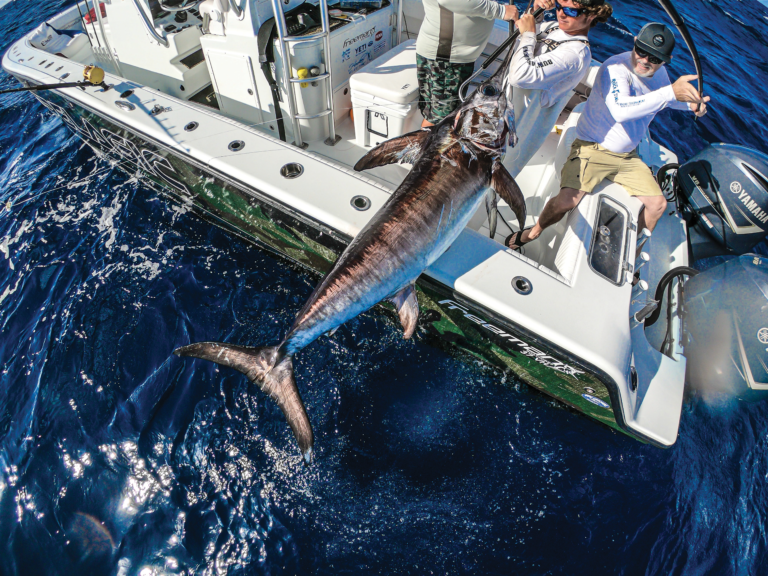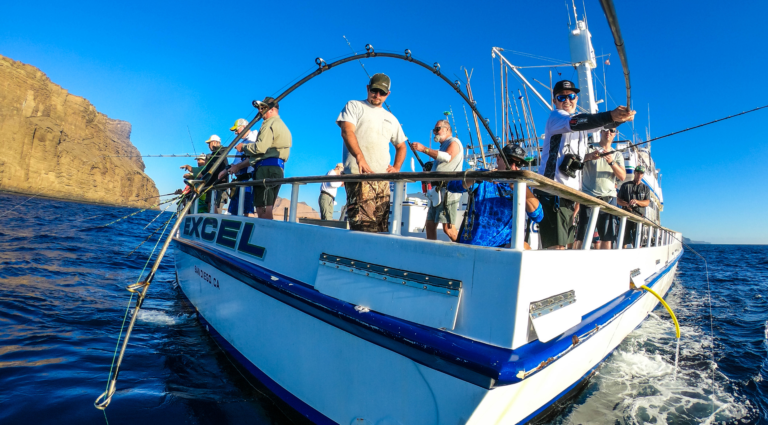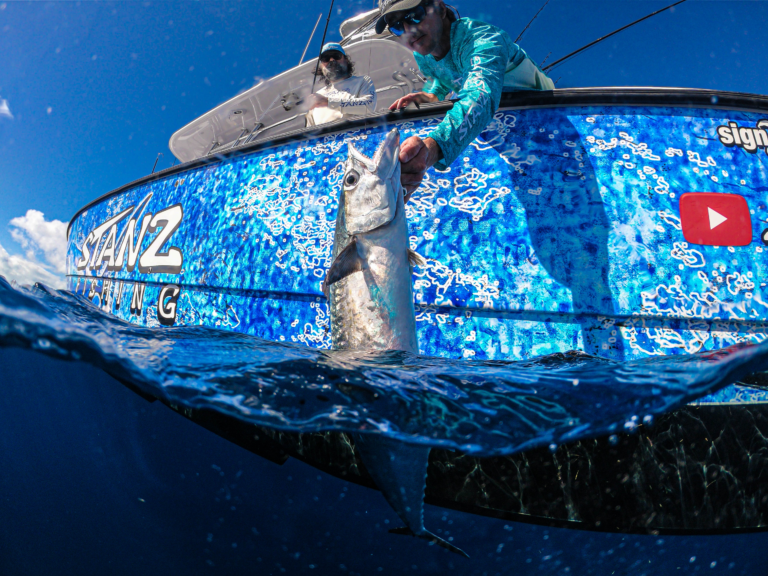Article Originally Published: 1/2/2023 | By: Sean Sullivan | Courtesy of floridasportfishing.com | Please click here for original article.
It’s undeniable, photography and fishing go hand in hand. In today’s information age, where the internet and social media dominate, capturing a photo of your catch is a critical part of the experience. If you want a truly post-worthy image, it pays to put some thought into how you shoot it.
For some photographers, like me, for whom fishing and photography are both passions, shooting fishing photos has become an art form all its own. Throughout the coming issues, we’re going to pull back the curtain on how some of the images in this magazine are created. Remarkably, there’s more to it than just catching a fish and holding it up — a LOT more. But once you get a handle on a few of these techniques, you, too, might find yourself shooting magazine-quality images. And, in the process, perhaps you’ll ignite a creative side of yourself you didn’t even know existed.
For this piece, I’ve outlined a few points to consider when shooting on the water. Nothing you ever see here is mandatory, nor are these points the end-all to how it’s done. As they say, there is more than one way to skin a fish. The best way to look at this information is simply as a series of suggestions; the key is to take these ideas and add your own spin to them.
So let’s dig in…

GET OUT IN FRONT
One of the trickiest parts of trying to shoot fishing, especially from a boat, is that a lot of times the anglers are facing outward fighting fish and you end up shooting their backs. One of the first things I tell anyone wanting to shoot better fishing photos is that if you want to get a great shot of the action, one of the most important goals is getting the camera in front of the angler. There are a variety of ways to do this; the easiest way, if the conditions permit, is to sit on the gunnel and lean out in front of the anglers as opposed to standing behind them. Taking it one step further, one of the most effective and fun ways to get the camera out in front is by using a pole-mounted camera.
CAMERA ON A STICK

A pole/boom-mounted camera can be an effective way to capture great clips and images on the boat. An easy way to do this is by mounting a GoPro on a telescoping extender. The pole, as an extension of the photographer, allows the camera to get out in front of the angler where the action is. It also allows the camera operator to back off a bit and still get a proper angle. It’s not uncommon for things to get hectic in the pit; having another body bumping around down there when the action is hot can be a recipe for frustration. In this instance, a pole camera can be truly invaluable.
ADD A DOME
If you want to take things another step further, you can add a degree of cool to your shots by using a transparent dome combined with your GoPro to get that in/out kind of image. There are a few varieties of domes to choose from, some better than others. A weakness you’ll encounter with these devices is that the plastic tends to be very sensitive to scratches. Basically, anything touching the dome will scratch it and, once it’s damaged, there’s really no way to repair it. So, it’s critical the dome is kept covered when not in use — even then, they don’t last forever and generally need to be replaced regularly.

Another thing to keep in mind is water on the dome. If you want to get great shots without distortion from water drops, the dome must be treated with a hydrophobic compound prior to use and also on a regular basis to keep the water from beading. Compounds like Rain X tend to do the trick, and in a pinch the old spit, dry and wipe can work. But, the important thing is to try and do it immediately upon receiving the dome and then following the directions on the bottle closely for best results.
Poles, domes and cages for the GoPro can all be found online — do a little digging and you’ll find what you need. It won’t cost a lot to get yourself started and, while it might take a few shoots to get the hang of things, it’s not rocket science. As with anything, practice makes perfect. Remember, photography is a numbers game: The more you shoot, the better your chance of getting a great shot or two. Just keep at it and hone your technique. You got this!





